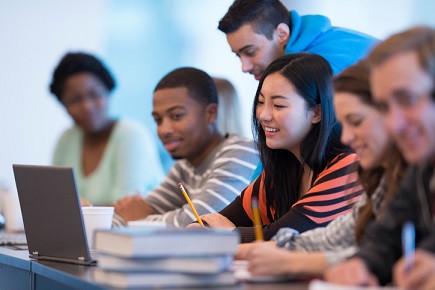
It’s no secret that Australia’s higher education institutions rely on international students when it comes to boosting revenues.
This doesn’t go unnoticed by the Federal Government, which recently introduced new measures to improve the quality of education amid the steady intake of international students – most of which come from Asia.
Some of these measures include making education agents’ operations more transparent, changing the categories of education providers, and even ensuring that the international students admitted can speak English properly.
That international students will continue to flow in is almost certain, but are Australians just as open to having more foreign students than domestic ones?
The recently published 29th ANUpoll reveals that Australians’ feelings on this are mixed.
According to the survey, a little over five in 10 Australians (52.8%) said they are satisfied with the current mix of international and domestic students.
But around 46.1%, or a little under five in 10 Australians who served as respondents in the poll, said universities should be teaching fewer international students, while teaching more domestic students.
The ANUpoll also found there are “very few” Australians who believe there should be more foreign students in Australian universities.
Australians on either side of this fence were found to have a common denominator: respondents who are currently attending university were found to be far less likely to think that there should be less foreign students compared to Australians who had never attended university.
ANU Associate Professor Nicholas Biddle, who served as the lead researcher of the poll, simply showed that domestic university students are more open-mindend.
“This finding gives some support for the view that exposure to foreign students brings a more positive attitude and that domestic students who interact with foreign students on a daily basis are actually quite supportive of their peers attending universities in Australia,” Professor Biddle said.
Stand on academic freedom
While opinions on international students are mixed, there is very little support when it comes to academic freedom of the higher education sector.
The poll found that only four in 10 Australians strongly agree that academic should have the freedom to express different views from the government.
Likewise, only a few Australians also believe that universities should invite speakers with different perspectives from most students in their campus.
This is despite another finding of the poll which reported that more Australians – a little under eight in 10 – trust the education sector more than the Federal Government itself.
Likewise, just under four in 10 Australians said that academics should focus on research without fearing funding constraints – a highly-contentious issue as institutions have always faced problems with partnering with relevant industries.
Mark Yaxley, Director A/NZ at D2L, said education is not a national identity, but instead part of truly global endeavour, whether that means Australians taking degrees from MiT, or international students enrolling in one of our institutions.
"We shouldn’t be confused about the competitive nature of education, nor underestimate the essential requirement for international students if we wish to maintain the highest quality of education for our learners," Yaxley told The Educator.
Yaxley pointed to a recent report which found Australia has slipped to 14th in the recent World Digital Competitiveness rankings.
"If we want the move up the list, we need to attract the best by focusing on talent," he said.
"That applies to both the universities which compete for local and international talent, as well as our national economy, which relies on the next generation of bright students to power it through this era of digitisation.”


